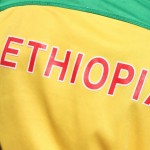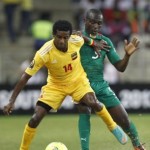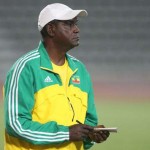The list reads like a who’s who of modern Dutch football: Rafael van der Vaart, Maarten Stekelenburg, Klaas-Jan Huntelaar, Arjen Robben and John Heitinga. The players were all members of the Netherlands’ FIFA U-20 World Cup campaign in Argentina, where the coveted No10 jersey was worn by Youssouf Hersi.
The Ethiopian-born, Dutch-raised wide midfielder played all five matches at Argentina 2001 but, unlike many of his former Jong Oranje team-mates, Hersi’s domestic career has been a mixed experience involving nine different clubs. However, the 31-year-old seems to have found a new lease of life at in-fashion A-League club Western Sydney Wanderers.
Long and winding road
Born in Dire Dawa, Ethiopia, Hersi’s family departed Africa when he was five years old. Not for the last time, Hersi’s life experience was about to turn full circle. He lived and grew up in a rural part of the Netherlands, but a chance meeting with a local resident with an eye for football talent set Hersi on his professional football pathway.
His entire family uprooted and moved to Amsterdam after the teenage Hersi was offered the chance of a lifetime; a contract with Ajax and their famed youth development system. After a short spell in the Ajax first team, Hersi enjoyed varying degrees of success at a variety of Dutch Eredivisie clubs, most notably Twente under former England manager Steve McClaren.
But a run of injuries, and an unhappy spell in Greece, saw Hersi become the latest in a long line of Dutchmen to make a splash in Australian football. Another life changing experience was at hand.
Shining Down Under
Against his natural instincts, Hersi made the move to the other side of the world to a culture and league he knew little about. Adding to his trepidation was that the Wanderers were a new club yet to even play a competitive match.
“Something in my head said I needed to leave Holland,” Hersi told FIFA.com. “I didn’t know what to expect when I arrived. When I came here there was nothing, empty offices… From the Europa League to here…” said Hersi, his train of thought seemingly lost as he thought back to that initial experience.
“But I settled in very quickly. I came to the west side of Sydney and I saw a lot of different communities, and I was like ‘wow’. It was different, but it feels good. When I first arrived, every day something surprised me. Here you can touch the people, they can touch you and you can talk to the people. It is not the number one sport here. The pressure is off because the league is so young.
“It is a little bit Dutch here, but just more sun,” continues Hersi with a trademark smile. “People here accept you so quickly.
“When I came here and saw the stadium packed, I thought ‘the club is new, how is this possible?’ People here (in western Sydney) love football, watch football and grew up with football so now they have their own team. Each week is sold out, it is hard to get tickets. Are we in Australia?” says Hersi rhetorically with a laugh and smile.
Fast forward just 18 short months from his arrival in Australia and Hersi’s leap of faith has been vindicated. The Wanderers, remarkably, won the league in their maiden season and on Wednesday will make their AFC Champions League debut as Korea Republic powerhouse Ulsan Hyundai visit western Sydney.
All the while Hersi, has been a central and popular figure for the Wanderers. “I played in the Europa League, but this one is different,” he said. “I don’t know what to expect actually.”
Hersi says the obvious distinction from Europe is the enormous travel demands, with teams travelling between Australia and east Asia facing a minimum 20-hour round-trip. “In Europe maybe two or three hours and that is it,” he said. “The recovery from that is very quick in comparison.
“The other teams will have quality as they are the champions of their country. So now we have to find a way to win and accept the challenge.
Journeyman Hersi smiling Down Under























![Police in Addis Ababa arrested Ethiopian woman for wearing fake butt pads [Satire] Police in Addis Ababa arrested Ethiopian woman for wearing fake butt pads [Satire]](https://www.ethiopianopinion.com/wp-content/plugins/top-10/timthumb/timthumb.php?src=http%3A%2F%2Fwww.ethiopianopinion.com%2Fwp-content%2Fuploads%2F2014%2F04%2FUnknown-150x150.jpg&w=&h=&zc=1&q=75)





Join Conversations